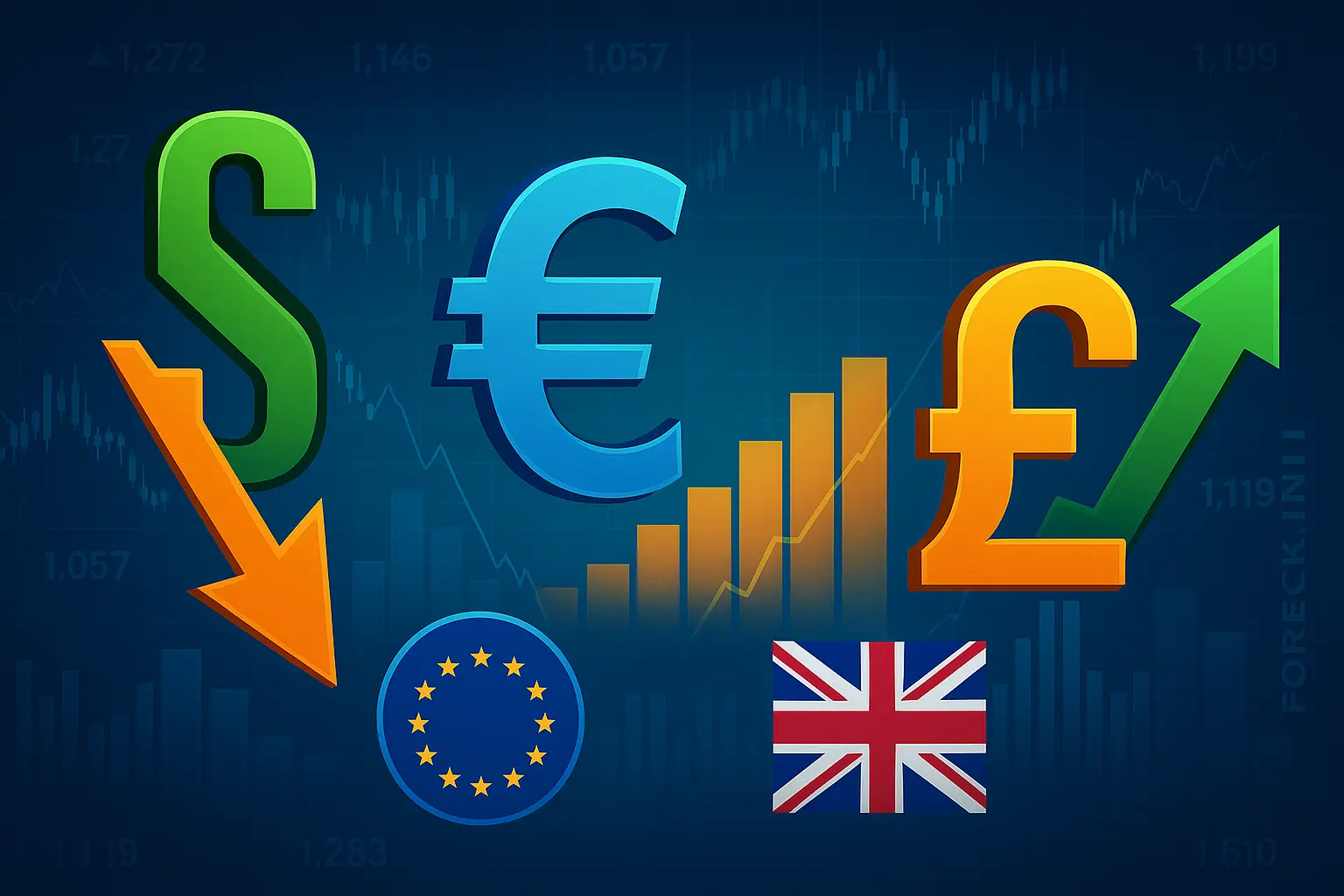The currency is recovering after Friday’s losses following comments by Federal Reserve Chair Jerome Powell at the Jackson Hole symposium. He noted that changes in tax, trade, and immigration policy have increased the likelihood of labor market cooling and price growth, raising stagflation risks. Powell said that the hawkish outlook and shifting risk balance may require cautious adjustments in monetary policy. Investors interpreted this as a signal for a September rate cut of at least 25 basis points, with the probability rising to 85% according to the CME FedWatch Tool. Experts remain cautious, noting that Powell’s speech did not bring fundamentally new information, leaving the Fed’s September decision uncertain. St. Louis Fed President Alberto Musalem confirmed that additional inflation data is needed before making a decision on September 19.
Eurozone
The euro is strengthening against the yen but weakening against the pound and the US dollar.
Today, IFO released August data: Germany’s business climate index rose from 88.6 to 89.0, a 15-month high, beating the forecast of 88.7. The current conditions index fell slightly from 86.5 to 86.4, versus expectations of 86.7, while business expectations increased from 90.8 to 91.6, compared to 90.2 expected. IFO President Clemens Fuest said national recovery remains weak due to worsening export prospects, affected by the trade agreement between Brussels and Washington raising tariffs on goods and services exported to the US by 15%.
United Kingdom
The pound is strengthening against the yen and the euro but weakening against the US dollar.
Today is a public holiday in the UK, reducing investor activity. On Sunday, Bank of England Governor Andrew Bailey said economic recovery is slowing due to reduced labor force participation. He noted that population aging and falling employment among young people are key problems requiring measures. Statistics show that the percentage of people aged 16–64 active in the labor market is lower than in other developed economies. Some board members see this as one of the main reasons behind accelerating inflation.
Japan
The yen is weakening against the pound, euro, and US dollar.
Traders are focused on comments by Bank of Japan Governor Kazuo Ueda at the Jackson Hole symposium. He said wage growth is spreading beyond large companies and is likely to continue as labor shortages worsen. Ueda called the shortage of skilled labor a serious issue for the economy. Investors took this as a signal of possible monetary tightening in the medium term, since rising wages drive inflation. Nearly two-thirds of economists surveyed by Reuters in August expect the Bank of Japan to raise rates by at least 25 basis points this year.
Australia
The Australian dollar is strengthening against the yen, euro, US dollar, and pound.
Tomorrow at 03:30 (GMT+2), the Reserve Bank of Australia will publish minutes from its meeting two weeks ago, when the interest rate was cut by 25 basis points to 3.60%, the lowest since April 2023. Officials downgraded their recovery outlook. Governor Michele Bullock said borrowing costs may need to be slightly lower to support stable inflation and employment growth.
Oil
Oil prices continued to rise amid disappointment over the lack of progress in resolving the Russia–Ukraine conflict. More than a week has passed since the meeting between US President Donald Trump and Russian President Vladimir Putin, but no agreement has been reached. Over the weekend, Trump repeated his intention to introduce new sanctions against the Russian energy sector if no diplomatic solution is found within two weeks, which could significantly reduce supply and further support prices.

